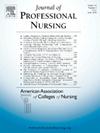The effect of chatbot-supported instruction on nursing students' history-taking questioning skills and stress level: A randomized controlled study
IF 2.9
3区 医学
Q1 NURSING
引用次数: 0
Abstract
Background
Comprehensive history-taking is crucial for patient assessment, prioritisation of care, and planning of care. While direct instruction methods effectively explain history-taking processes and components, they provide insufficient opportunities for practice, necessitating the implementation of supplementary teaching strategies.
Objective
This study aimed to examine the effects of AI chatbot-supported history-taking training on nursing students' questioning skills and clinical stress levels.
Methods
This randomized controlled study with pretest-posttest was conducted with 82 “first-year” nursing students. The students were randomly assigned to either an intervention (n = 41) or a control (n = 41) group. The intervention group underwent history-taking using the traditional teaching method (theoretical training, watching a video, and clinical practice) plus an artificial intelligence (AI) chatbot; the students in the control group were trained only with the traditional method.
Results
The intervention group demonstrated significantly superior performance in two specific components: history of present illness and review of systems (p < 0.05). Clinical stress levels showed mixed results, with significant differences in Challenge and Benefit subscales but no difference in overall stress scores between groups.
Conclusion
Chatbot-based history-taking instruction is efficacious in improving students' history-taking questioning skills in specific components of history-taking, but not in clinical stress.
聊天机器人辅助教学对护生答疑能力及压力水平的影响:一项随机对照研究
背景:全面的病史记录对于患者评估、护理优先排序和护理计划至关重要。虽然直接教学方法有效地解释了历史的过程和组成部分,但它们提供的实践机会不足,需要实施辅助教学策略。目的探讨人工智能聊天机器人对护生提问能力和临床压力水平的影响。方法采用前测后测的随机对照研究方法,对82名护理专业一年级学生进行调查。这些学生被随机分配到干预组(n = 41)或对照组(n = 41)。干预组采用传统的教学方法(理论培训、观看视频和临床实践)加上人工智能聊天机器人进行历史记录;对照组仅采用传统方法进行训练。结果干预组在病史和系统回顾这两个方面表现出显著的优势(p <;0.05)。临床压力水平显示出混合的结果,在挑战和利益亚量表上有显著差异,但在总体压力得分上各组之间没有差异。结论基于聊天机器人的听诊教学对提高学生听诊特定环节的听诊提问能力有一定效果,但对临床应激能力无明显效果。
本文章由计算机程序翻译,如有差异,请以英文原文为准。
求助全文
约1分钟内获得全文
求助全文
来源期刊
CiteScore
4.80
自引率
8.00%
发文量
153
审稿时长
52 days
期刊介绍:
The Journal will accept articles that focus on baccalaureate and higher degree nursing education, educational research, policy related to education, and education and practice partnerships. Reports of original work, research, reviews, insightful descriptions, and policy papers focusing on baccalaureate and graduate nursing education will be published.

 求助内容:
求助内容: 应助结果提醒方式:
应助结果提醒方式:


